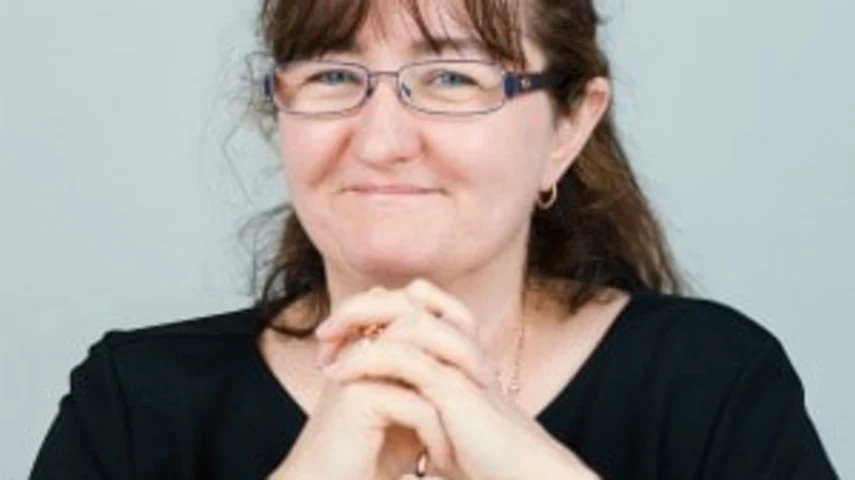What women want from a workplace



It was a real honour to be the inaugural winner of the Woman of the Year in the Super Review/Money Management Women in Financial Services Awards in 2013.
I am also really pleased to see the Awards go from strength to strength with some amazing women nominated and winning each year. And it’s that time of the year again!
I joined the financial services industry in 1992, at a time when the 1987 crash was still fresh in people’s minds, when Japan was around 30 per cent of global equity indices and when the superannuation industry was small and funds had “plan secretaries” as opposed to chief executives, if they had anyone at all.
There were also very few senior women, but some very capable women joining and working through the ranks. Fast forward to today, and lots of things have changed. The global financial crisis (GFC) was our last major “crash” (likely an understatement) and not so fresh in our minds ahead of its 10-year anniversary, Japan is now less than 10 per cent of world equity indices, the superannuation industry is huge and almost all funds employ CEOs and many other professional staff.
But there is still a very small proportion of senior women, although many very capable young women are joining the industry. So that isn’t really that different in 25 years. So why is that? Why don’t women stay in the financial services industry?
People often ask me what challenges I have faced in the financial services industry as a woman and how I have dealt with them, as though I can speak for all women. I can’t and I never try to. But I can speak from my experience and observations.
It is also really easy to talk stereotypes when we talk about this topic, and I try not to do that too much either but there are strong commonalities in what many women want from a workplace when they are asked.
I have listed a few below but would also add that these are not necessarily women-specific.
Mentoring and professional development
I have been lucky in my professional career to have been strongly supported and mentored by experienced women and men, but mainly men as there were never that many senior women.
I don’t think I really knew how important that was at the time, but all those people helped give me an honest perspective on my strengths and weaknesses and they helped me achieve my potential by encouraging me to try new things, to fill my knowledge and experience gaps, to value diversity and teamwork and to back myself.
(Genuine) flexibility
Having now moved to a part-time role, I understand that part-time doesn’t necessarily mean flexible. It really just means you work fewer hours, so thinking about what genuine flexibility looks like is important.
In a 2014 article called ‘The working woman wants a wife’, Annabel Crabb wrote that her research showed that among full-time working fathers, 76 per cent had a spouse who worked part-time or did no paid work at all, compared with only 15 per cent of working mothers.
Further, other family-related issues are often predominantly dealt with by women e.g. caring for aging parents and the general running of the household. People make choices all the time about how to run their families and their lives and they are personal decisions that should be respected.
However, I believe that women are happier and therefore more productive if they are given support to manage the everyday juggle of conflicting work and home responsibilities in a way that works for them but within the commercial framework of a modern business.
We also know that supporting women to return to work from maternity leave is a critical juncture in many careers. Women can be supported at this time by ensuring that the transition back to work is well managed, that they are given the adjustment time they need, and that the job they come back to helps them continue to develop professionally if that’s what they want to do.
Progression and/or promotion on return from maternity leave or other career breaks sends a strong signal about the value of women in a workplace as does the ability to work flexibly or part-time and still progress.
Visible support from senior men
This is really important as it helps everyone accept that all forms of diversity, not just gender, can be commercially valuable in an organisation. There have been enough studies on this now that it should be well accepted. The Male Champions of Change have laid out some practical ideas for action such as avoiding the merit trap (the “we just need the best person for the role” argument), all roles flex and a commitment to the Panel Pledge.
Not every firm can implement all of these initiatives but every firm can consider them in the context of their businesses, and look at implementation options that make sense for their workplace and their staff.
Other things like ensuring younger women are aware of the paths for progression within the workplace ideally by seeing senior women who have achieved and maintained leadership positions, addressing unconscious bias in workplace behaviour and recruiting and ensuring there is no gender pay gap.
The initiative to improve diversity in the Frontier consulting practice, including gender, has been led by director of strategy and people, Kerrie Williams. We introduced unconscious bias training, we committed to the Panel Pledge, we became an ‘Endorsed Employer for Women’ by Diverse City Careers and we ensure that women (and men) who work in part-time roles can have meaningful leadership positions.
We now have 32 per cent women in our practice, which is around double the average in financial services firms (the CFA reports less than 20 per cent of its members are women – we use this as a proxy for employment in the financial services sector) but short of where we would like it to be.
But it has not been easy and we still wonder why women are so hard to recruit. Where do the senior women go?
Opportunities
There are many wonderful opportunities in the financial services sector to make a real difference in the work we do by having direct and indirect impacts on the lives of millions of Australians.
The opportunity to collaborate, to use technical skills, to communicate, to work together to solve problems and to make a difference are all there and are often the things many women (and many men) value in a career and a workplace.
But there is clearly more work to do to convince women that the financial services sector is a good place for them to start their careers and then to stay.
Fiona Trafford-Walker is director at Frontier Advisors and was Money Management's Woman of the Year in 2013.
Tickets are currently available for Money Management’s 2017 Women in Financial Services Awards.
Recommended for you
In this episode of Relative Return Insider, host Keith Ford and AMP chief economist Shane Oliver discuss the September quarter GDP figures, which show Australia’s economy regaining momentum.
In this new episode of The Manager Mix, host Laura Dew speaks to Haley Devine, head of wealth management at MaxCap Group, to delve into private credit and commercial real estate.
In this new episode of The Manager Mix, host Laura Dew speaks to Benjamin Leung, head of systematic investments at Macquarie Asset Management, to understand the use of systematic investments.
Marking off its first year of operation, Perth-based advice firm Leeuwin Wealth is now looking to strengthen its position in the WA market, targeting organic growth and a strong regional presence.










